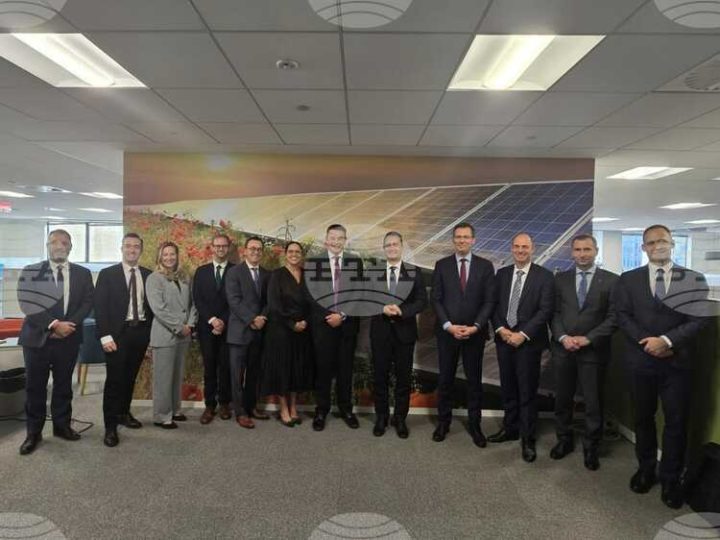Energy Minister Zhecho Stankov discussed with Meta, CEBA, and IP3 Corporation the the strategic role of secure, emission-free energy for development of new infrastructure at the Kozloduy N-plant site.
The future of the digital industry and the strategic importance of secure, long-term, and emission-free energy for building AI gigafactories and data centers were the focus of talks between Bulgaria’s Minister of Energy, Zhecho Stankov, and senior representatives of Meta, the Clean Energy Buyers Association (CEBA), and IP3 Corporation. The meetings took place in Washington, D.C., during an official working visit to the United States.
The Bulgarian energy minister noted the competitive advantages of the area surrounding the Kozloduy N-plant, including its physical proximity to a major energy source, excellent existing optical connectivity, and access to water resources from the Danube River for cooling.
“Such projects require uninterrupted power supply with large volumes of stable, secure, and affordable energy—qualities that nuclear energy provides. Our country, already a recognized producer and net exporter of energy, is ambitious to use this energy as a foundation for sustainable economic growth, quality employment, and the development of high-tech industries,” said Minister Stankov.
Meeting with Darija Cosic, Energy Strategy Manager at Meta, CEBA CEO Rich Powell, and IP3 Corporation CEO Michael Hewitt, Energy Minister Zhecho Stankov discussed the implementation of potential projects aligned with the shared vision of developing high-tech industrial zones powered by stable and clean energy. Given the complexity of such initiatives, the idea of organizing a specialized investment expo focused on companies operating in the digital economy sector was also discussed.
The topic of diversification and sustainable LNG supply was central to Minister Stankov’s meeting with Caroline Eliassen, Vice President of Government Affairs at Phillips 66 — one of the leading energy companies. The meeting covered long-term supply scenarios, infrastructure requirements, and potential models for strengthening transatlantic energy cooperation.
Minister Stankov and his delegation also participated in a roundtable organized by the Business Council for International Understanding (BCIU), dedicated to “Critical Energy Infrastructure in Bulgaria: Aligning Policy, Financing, and Technology.” The discussion emphasized the need for strategic dialogue between the public sector, financial institutions, and technology companies to achieve synergy in implementing investments with long-term added value. Bulgaria’s potential to establish itself as a regional energy and technology hub was also presented.
/PP/

